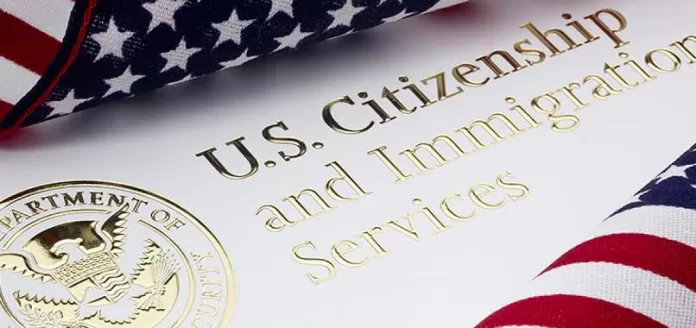Starting October 1, 2024, the United States is set to implement significant changes to the International Entrepreneur Rule (IER), increasing the minimum investment and revenue thresholds for foreign entrepreneurs seeking to establish businesses in the country.
Designed to create a pathway for innovative talent, the IER allows foreign entrepreneurs to launch startups in the U.S. by securing financial backing from qualified U.S. investors rather than relying on substantial personal funds. The updated requirements reflect the government’s commitment to attracting serious entrepreneurs who can contribute positively to the economy while ensuring that investments align with national interests.
Understanding the International Entrepreneur Rule
The International Entrepreneur Rule offers a pathway for foreign nationals to initiate businesses in the U.S. without needing a substantial personal investment. Instead of self-funding, entrepreneurs must secure backing from qualified U.S. investors, demonstrating the potential for growth and job creation within their startups. This approach aims to attract innovative ideas and skilled entrepreneurs to the U.S. market.
Key requirements under the IER include:
- Entrepreneurs may be either living abroad or already in the U.S.
- The startup must have been established in the U.S. within the past five years.
Updated Investment Requirements
Effective October 1, 2024, the minimum investment and revenue thresholds for the IER will see substantial increases:
- Investment Requirement: Entrepreneurs must demonstrate at least $311,071 in qualified investments, a rise from the previous threshold of $264,147.
- Government Grants: The minimum for qualified government awards or grants will now be $124,429, up from $105,659.
- Re-parole Consideration: The revenue required for re-parole has increased from $528,293 to $622,142.
These adjustments reflect the U.S. government’s commitment to ensuring that foreign entrepreneurs bring viable business plans that can contribute significantly to the economy.
U.S. Citizenship and Immigration Services (USCIS) will update Form I-941, the Application for Entrepreneur Parole, and its instructions to incorporate these revised amounts.
Qualifications for Investors
To qualify as an investor under the IER, individuals or organizations must have invested at least $746,571 in startup entities over five years, an increase from the previous threshold of $633,952. Additionally, two of those startup entities must meet at least one of the following criteria:
- Created a minimum of five jobs.
- Generated $622,142 in revenue, with an annual growth rate of at least 20%, a rise from the previous requirement of $528,293.
These stringent requirements aim to ensure that investments lead to tangible economic contributions and job creation.
Parole Period for Entrepreneurs
Entrepreneurs who are approved under the IER can receive an initial parole period of up to 2.5 years, with the potential for an additional 2.5 years of re-parole. This allows a maximum stay of five years. During this period, entrepreneurs can actively work on their startup ventures, and their spouses may also apply for employment authorization, thereby enhancing the family unit’s economic stability during the entrepreneurial journey.
Implications of the Changes
With the U.S. raising the investment thresholds under the IER, the landscape for foreign entrepreneurs is set to shift significantly. While these new regulations may present challenges for many aspiring business owners, they also reflect a commitment to supporting ventures with the potential to enhance the U.S. economy and create jobs.
The heightened requirements may lead to a more competitive environment where the quality and feasibility of business ideas take precedence over the mere volume of applicants. Entrepreneurs will need to focus on presenting robust business plans that clearly outline how their ventures can grow and generate employment.
Moreover, these changes underscore the importance of securing strong financial backing and establishing connections with qualified U.S. investors. Building a solid network and demonstrating the capability to drive business growth will become essential components for success in the U.S. entrepreneurial landscape.
READ ALSO: Top 10 Strongest Currencies in Africa
Benefits to International Entrepreneurs Under the International Entrepreneur Rule (IER)
The International Entrepreneur Rule (IER) provides several significant benefits for international entrepreneurs looking to establish and grow their businesses in the United States. Here are some of the key advantages:
1. Access to the U.S. Market
- Market Size and Diversity: The U.S. is one of the largest and most diverse consumer markets in the world. International entrepreneurs gain access to a vast customer base, increasing the potential for sales and revenue.
- Economic Stability: The U.S. economy is relatively stable, providing a favorable environment for business operations compared to some other regions.
2. Networking Opportunities
- Connect with Investors: The IER encourages partnerships with qualified U.S. investors, which can lead to valuable networking opportunities and support for business growth.
- Access to Industry Experts: Entrepreneurs can connect with mentors, advisors, and industry leaders, gaining insights and guidance that can enhance their business strategies.
3. Supportive Ecosystem for Startups
- Incubators and Accelerators: Many U.S. cities have vibrant startup ecosystems with access to incubators and accelerators that provide resources, mentorship, and funding opportunities.
- Innovation Hubs: Areas like Silicon Valley and New York City are renowned for their focus on innovation, offering an environment conducive to tech and entrepreneurial ventures.
4. Temporary Parole Status
- Work Authorization: Entrepreneurs approved under the IER can obtain temporary parole status, allowing them to live and work in the U.S. for up to five years. This status provides them with the legal framework to operate their businesses.
- Pathway to Residency: The initial parole can potentially lead to longer-term residency options, which is an appealing factor for many international entrepreneurs.
5. Increased Funding Opportunities
- Access to U.S. Capital: By securing backing from U.S. investors, international entrepreneurs may gain access to more substantial funding opportunities, allowing for better financial support to scale their businesses.
- Government Grants: The updated rules include provisions for government grants, providing additional financial resources for startups that meet specific criteria.
6. Job Creation Potential
- Contributing to the Economy: The IER emphasizes job creation, allowing international entrepreneurs to make significant contributions to the U.S. economy. This not only benefits their businesses but also enhances their reputation and credibility.
- Building a Local Workforce: As businesses grow, entrepreneurs can create job opportunities for local talent, fostering community development and engagement.
7. Enhanced Credibility
- Legitimacy in the U.S. Market: Obtaining parole status under the IER adds a level of legitimacy to the business, making it more attractive to investors, customers, and partners.
- Compliance with U.S. Regulations: Entrepreneurs who navigate the IER process demonstrate their commitment to adhering to U.S. laws and regulations, further enhancing their credibility.
8. Opportunity for Family Inclusion
- Spousal Work Authorization: Entrepreneurs can also bring their spouses to the U.S., who can apply for employment authorization, thus contributing to the household’s economic stability.
- Family Stability: The ability to keep families together while pursuing entrepreneurial ventures can enhance overall well-being and productivity.
Conclusion
The increase in investment and revenue thresholds under the International Entrepreneur Rule is a pivotal development for foreign entrepreneurs seeking to establish businesses in the U.S. While these changes may raise the bar for entry, they also signal the U.S. government’s ongoing support for promising ventures that can contribute to economic growth and job creation.
As the October 2024 deadline approaches, prospective entrepreneurs should prepare to navigate these new requirements, focusing on building compelling business models and securing the necessary investment to thrive in a competitive marketplace. The evolving landscape presents both challenges and opportunities, encouraging innovation and resilience among those looking to make their mark in the U.S. economy.


